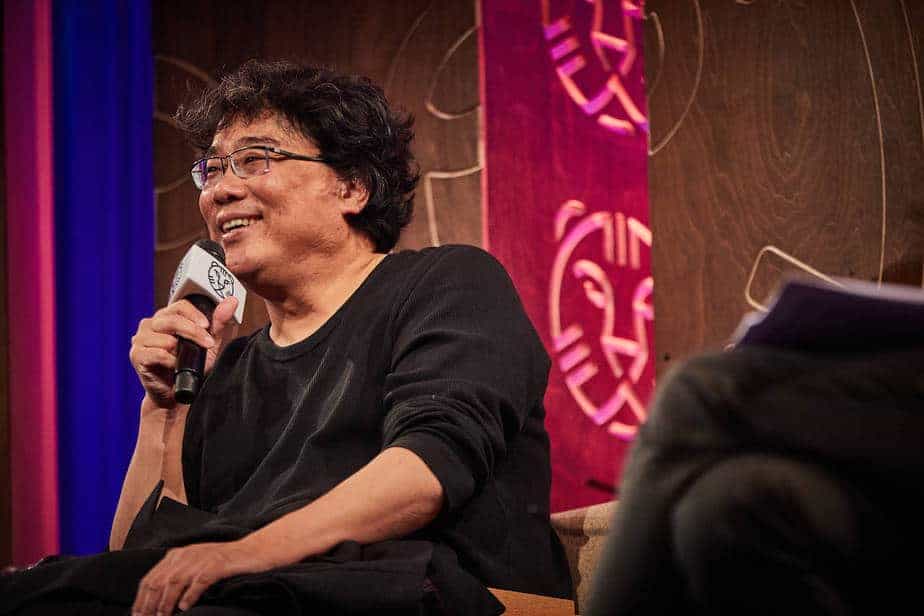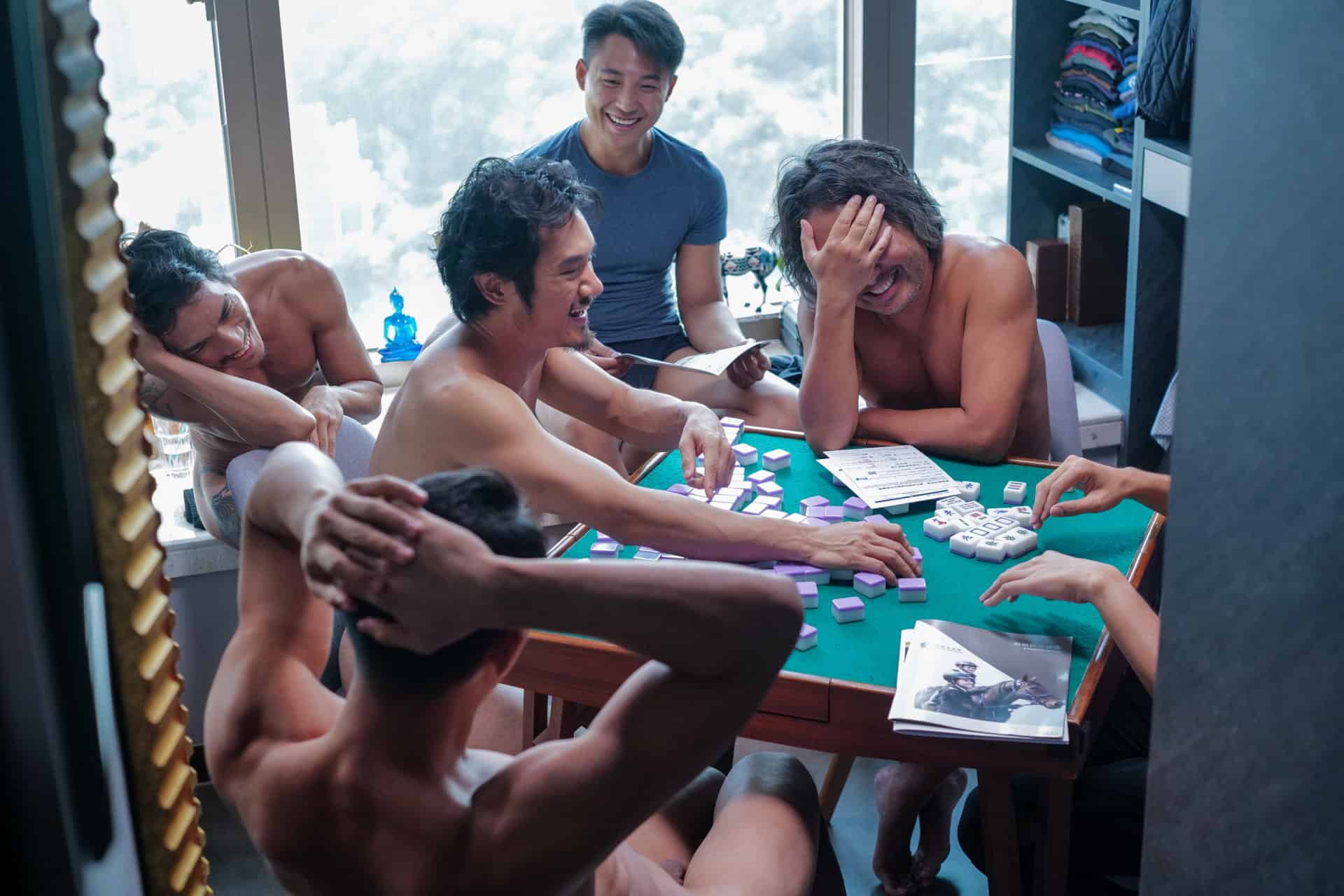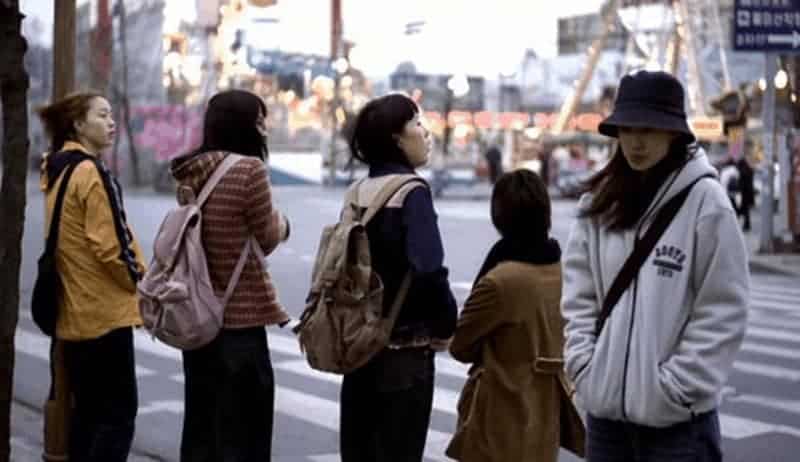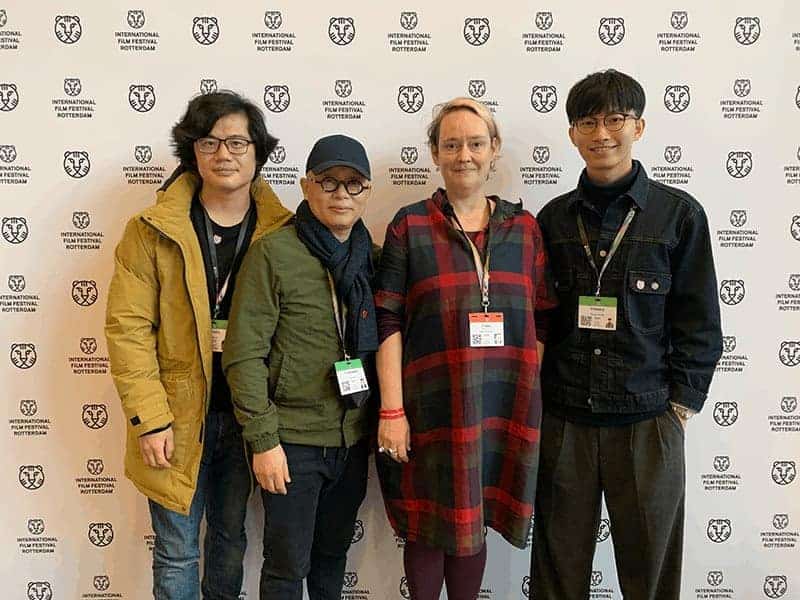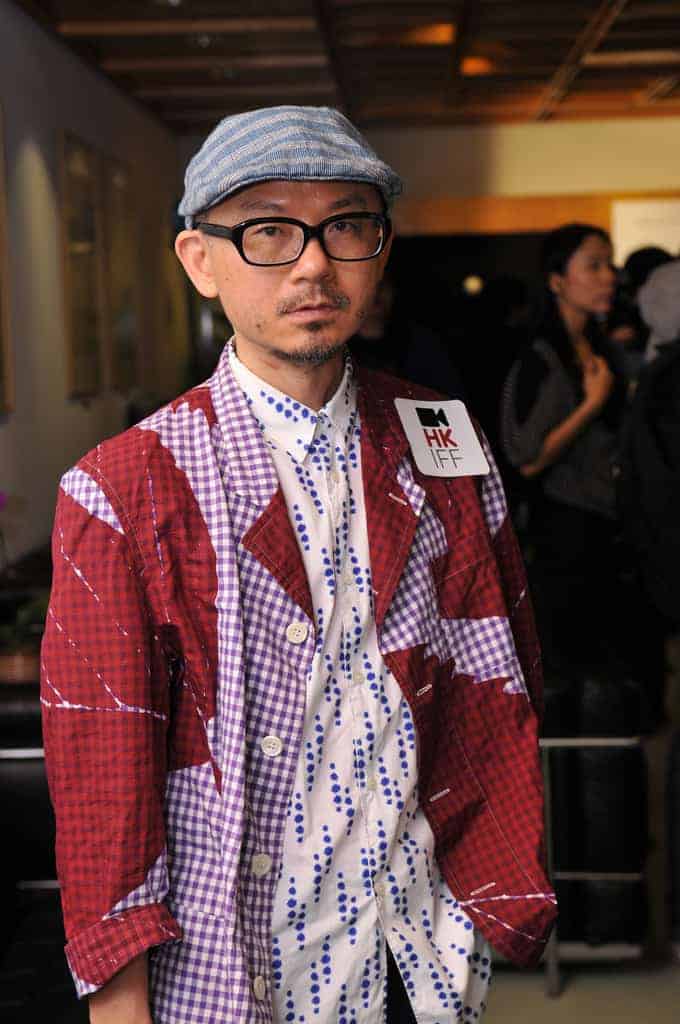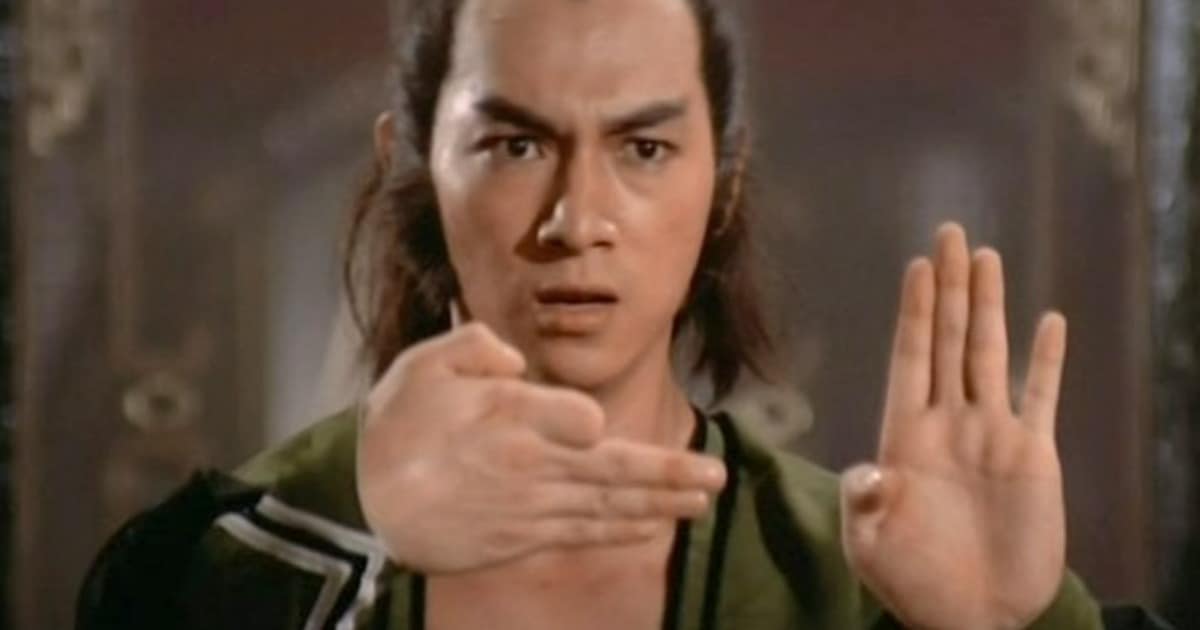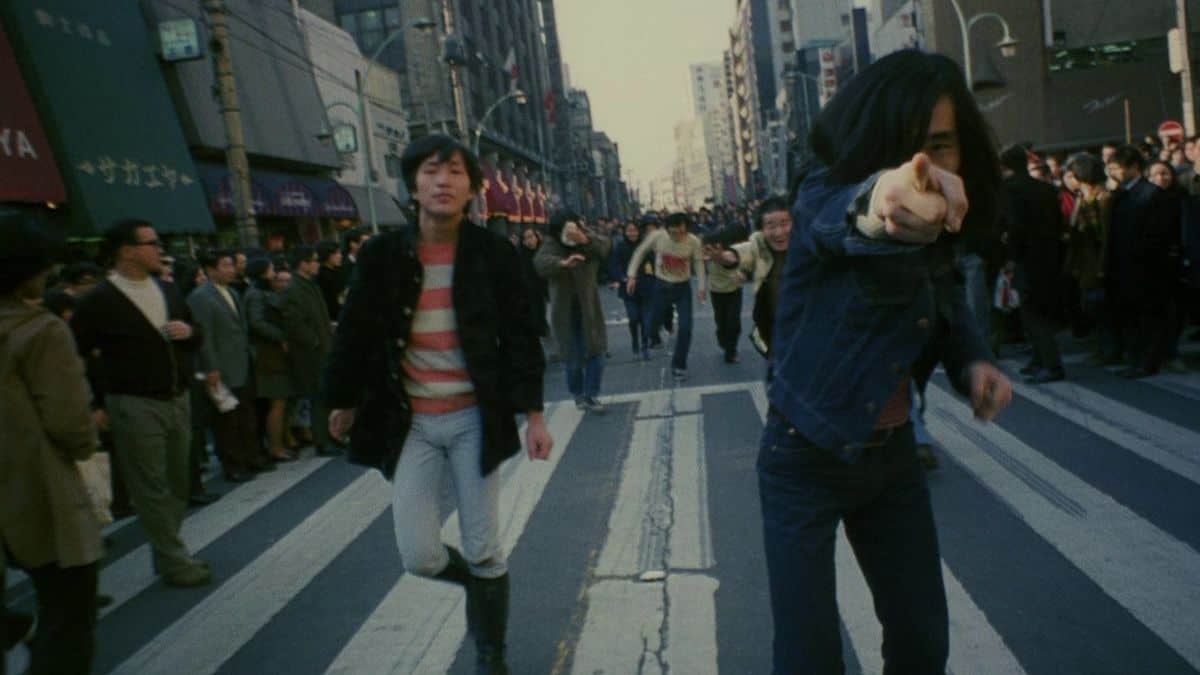Bong Joon-ho, the South Korean film director and screen writer, was born in Daegu in 1969. He majored in sociology before studying at the Korean Academy of Film Arts. His second feature, ”Memories of Murder” (2003) was one of the biggest box-office hits in Korea and also brought him to the attention of international audiences. With “Snowpiercer” he made a big budget feature starring Chris Evans, Ed Harris and Tilda Swinton. After “Mother” (2009) screened at Cannes' Un Certain Regard, “Okja” (2017) earned him his first Palme d'Or nomination and was released on Netflix. “Parasite” (2019) premiered at Cannes, where it received an eight-minute standing ovation and became the first South Korean film to win the Palme d'Or. It also became the first Korean film to be nominated at the Oscars and the Golden Globes.
On the occasion of the world premiere of the black-and-white version of at the International Film Festival Rotterdam (IFFR), where it won the audience award, we speak to him about why he made this version of the film, the difference of working on middle and big budget films, the Oscar race and other topics.
The black-and-white version of “Parasite” had its world premiere during IFFR. How do you think this version changes our perception of the film?
I think the experience is different for every audience. Even for me, I watched the whole B&W movie twice and both times it felt quite different. It's very hard to simplify but I feel we can focus more on very subtle nuances, like the facial expressions or the range of emotions of the actors, when the color element is gone.
I also feel that B&W creates a sense of distance and especially with a distressing movie such as “Parasite” that offers me, the director, some kind of safety shelter. I have a similar feeling when I watch old classical movies. Even if the story is quite serious, it is still a movie from the past and there is some distance between me and the film.
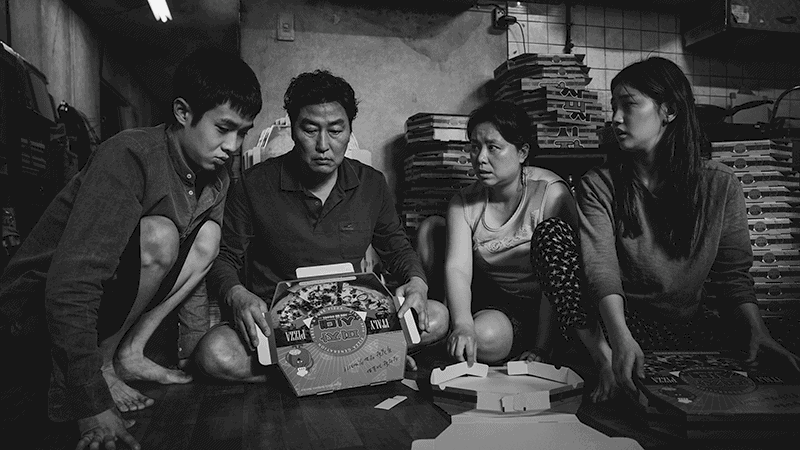
Why did you decide to make this version?
I always had an admiration for the classic B&W films, and I want to achieve that same look in my own work. Of course, I know it is impossible to make the same kind of beautiful films as Yasujiro Ozu or John Ford did. Those ‘real' B&W films, shot on 35mm, with cinematography by Greg Toland and the likes, these are very hard to imitate but I keep trying.
During the masterclass, you mentioned that while making “Parasite” you were not thinking about international success at all. That you just wanted to film a Korean story. Could you explain what you think is so very Korean or what Korean audiences will see differently?
I did not think there was going to be a big problem with understanding the film outside of Korea, also because we did our very best on the subtitles. But when I saw the reactions in Cannes, I felt relieved because then I realized that there could have been some big obstacles. The difference is in very small details and context. Maybe you remember, in the movie there is this talk about Taiwanese cupcakes and that has a very specific Asian context to it. So a Korean or a Taiwanese audience probably will catch that context immediately, but in Europe or in the US it might be a little bit confusing.
Can you explain this context of the Taiwanese cupcakes to us?
There is a big failure of many small businesses in Korea. We don't have a social welfare system, so people who lose their job often begin their own business which of course is very tough and difficult. Three or four years ago, Taiwanese cupcakes were booming in Taiwan and Korea. As a result, many people set up businesses selling those but 98% of them failed and went bankrupt. The main character in the movie, mister Kim, has an experience of bankruptcy and business failure by Taiwanese cupcakes and the guy in the basement, he also had a Taiwanese cupcake company so they actually can share that traumatic experience.
Did you watch films like “Bacurau” and “Joker' because they kind of go into the same area of class struggle? And do you think that is a coincidence?
“Bacurau” screened in Cannes, but I've had no chance to see it yet. “Joker” I did watch and also “Shoplifters” by Koreeda Hirokazu which is another recent film about the lower class. We, the directors, never discuss the subject matters that we are going to deal with in our films. But it happens that they are similar, and I think that is quite natural because creators reflect the period or age that they are living in. “Joker” is quite a dark movie. For two hours only bad things happen, and it keeps getting worse and worse. And the very last bit of “Parasite” is also quite dark and less optimistic… the young boy, he announces that he will buy the house, but we already know it is impossible. That is very cruel and sad. But I wanted to be honest. It's quite easy to make the last part of the movie optimistic or decorated by some sweet hope. But if I had done that it would make the audience more uncomfortable. So even if the ending expresses fear or an uncomfortable feeling, I think it is best to express it with honesty.
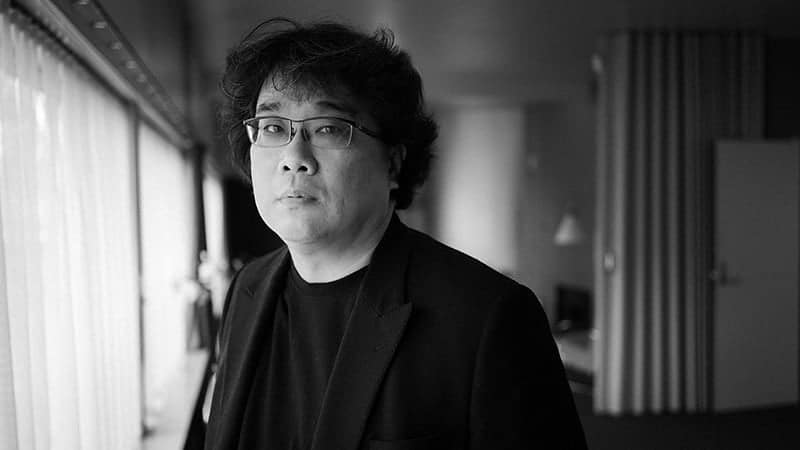
In Cannes you said that “Parasite” showed a reality in Korea that a lot of people don't want to see. Can you tell us about the general response to the film in Korea?
It was released in Korea right after Cannes and it was a huge box office success. But the reactions of the audience were very diverse. Some hated the movie because it is so uncomfortable. Some loved it because they find it an exciting movie with an unpredictable story and because it has great actors. And then another group of people thinks the movie is a bit of insult to the poor people. These groups are not divided by generation or rich and poor, which makes it hard to analyze and the different reactions make the huge box office success very strange.
There is this plot device of the Kim family and their smell. How did that come about and what does it imply?
It's a very cruel thing in the film. In real life, we always smell each other, but we never talk about it because it is very rude. One's smell always expresses one's condition of life and working situation. That is the reason we are always very careful when talking about or mentioning smell. But in “Parasite” we cannot avoid talking about it, because it is a story about a very unique situation of rich and poor people living very close together and as a result of that really smelling each other. In real life that doesn't happen often because the rich and poor are always separated physically, for instance in first and economy class in airplanes, using different hotels, going to different restaurants. But in the domestic world of housekeepers, drivers and tutors, there is a very real chance that they are close together in a small space, and the mentioning of smell in this situation matches the story.
In your work and especially in “Parasite” you tell a very exciting and dense story with genre elements, but you also offer a social view of society. Why do you think it is important to have that in your films?
For me the most important and first goal is to make a fun movie, with entertainment value and cinematic excitement so I am obsessed with that. Simply speaking, my goal is that with an audience of 500 in a cinema I want nobody to check their mobile phone because I really hate that. I want perfect control over 100% of the audience for every second of my film. But for a film to have such power I think is only possible with a very good insight in the human psychology. It is not possible with the technical aspects of cinema alone. So, to be able to mesmerize audiences for two hours I add bits of human psychology and human insight.

You are in the middle of a huge campaign going back and forth between the states and Europe to promote the film…what is the best part of it and what is the worst part of it?
Yes, especially in the US. It is my very first time experiencing this type of campaign, the Oscar race. It's actually a bit like a race with horses on the racetrack that keep running, going crazy, and physically it is very exhausting. But we meet many wonderful artists and filmmakers, like Martin Scorsese or Noah Baumbach and during this whole race season, we meet again and again and again, so we become friends, and everybody is getting super exhausted and tired together. A good thing is that, for example, a few weeks ago at the Directors Guild of America, there was a panel talk with me, Quentin Tarantino, Taika Waititi and Martin Scorsese. And Martin Scorsese explained the last scene and last shot of the movie “The Irishman”. For me that was a beautiful lesson. That kind of moments are very great, but the big race is very fucking crazy.
You secured six Oscar nominations which is quite rare for a foreign language film and you mentioned yourself in your Golden Globe speech this barrier for subtitles. How did you manage to jump over that barrier?
Actually, for us, the Asian and European people, for the audience that comes to festivals there is no barrier. We love subtitled movies, but that speech was mostly to the American audience who never did love subtitled movies. However, I think things are changing now with the possibilities of YouTube and Netflix and I think people in America are starting to not really mind subtitles, so I think maybe this remark was a bit out of fashion.
Did you have to work extra hard in the campaign because it is a foreign language film? Compared to the other nominated films?
Maybe, I don't know. Tilda Swinton my friend in London already experienced the whole thing and won an Oscar for “Michael Clayton”. So, I asked her if it was as tough then as it is for me now and she said that every year it's more and more intense.
Also, the big studios really compete with each other more and more, with more and more money and more and more events. For example, there was a rumor that Netflix paid huge money on the campaign for “Roma” last year. But I'm in the middle of it now, so maybe ask me again when it is over.

Your time working on “Snowpiercer” and “Okja” for Hollywood did it change you as a director and how did you implement these changes in “Parasite”?
Actually, those are not 100% a Hollywood movie, there is a Korean production company involved with the financing. Of course, the studio, is a US-company, Netflix, but there is a Korean location, Korean actors and although we cast English language actors, they were not only US but also English actors. So, it's all very mixed. It makes me wonder if I can qualify those two films as Hollywood projects, but anyway it was a good experience.
When I went back to work in Korea on “Parasite”… it wasn't really a come back because the very first beginning of “Parasite” was around 2013 and, even before “Okja”, in 2015 I already had a discussion with a production company about “Parasite”. So, it all kind of overlaps. But the important thing is, that it's a comeback to the middle or small budget movie and I was happy to come back to that because both “Snowpiercer” and “Okja” were big budget films. So the difference was mainly about budget size.
Can you explain why you were glad to go back to making mid-budget films? Would you stay in the big budget range if you had more freedom there?
There is some kind of politics in the industry, some common sense that with less budget you can get more freedom. However, for me it is not only about freedom, but also about my own style of filmmaking. When I was making “Parasite” and other similar size films, such as “Mother”, I felt like I was shooting the movie with a microscope: more focused on small details and nuances. Filming like that makes me very happy and excited. So, it's a matter of style too, not only of economics
With all the Oscar attention Hollywood is probably asking you to make movies there as well? There is already talk of a HBO-series based on “Parasite”?
There is no offer to make a movie in Hollywood because, my US agents know very well that I always direct my own script. So there is no offer.
Concerning the HBO series, I'm involved as a producer, but there will be someone else directing it. However, I want to be involved because it was me who suggested the very first idea.
Adam McKay, the director of “The Big Short” and “Vice” will be writing it. We met a couple of times and discussed many things already. I will support him and want to provide him with the ideas that I have on my iPad from when I was writing the script for the feature. For me, the series will be some kind of extended version of the movie. A limited series, of probably 5 or 6 episodes, in which we can dig deeper into the subject matter. But it is still at a very early stage.


